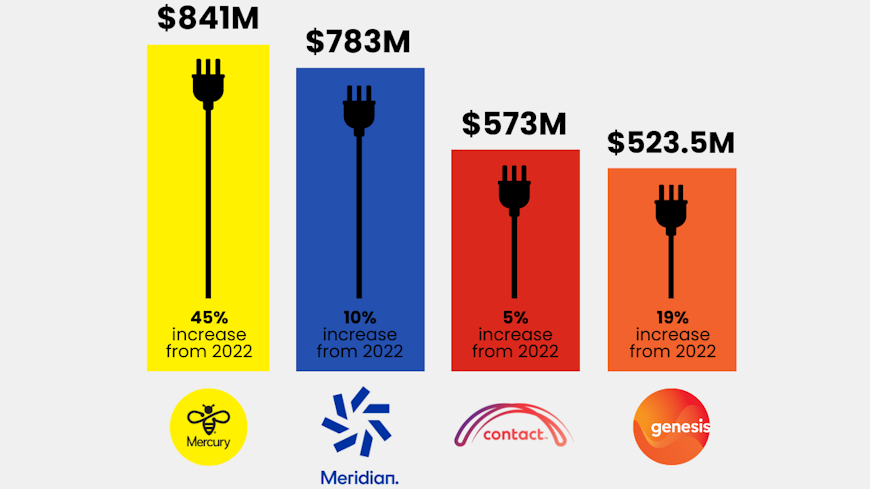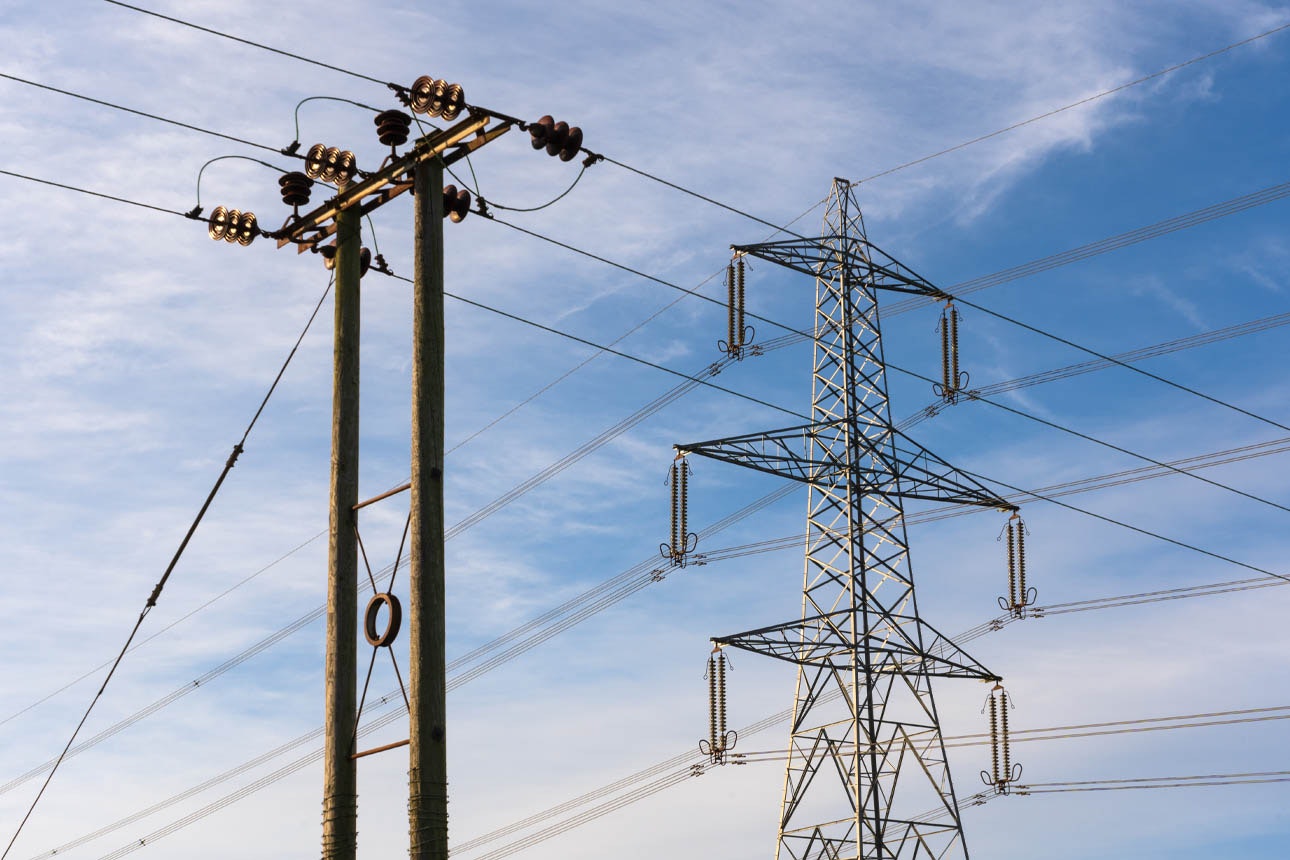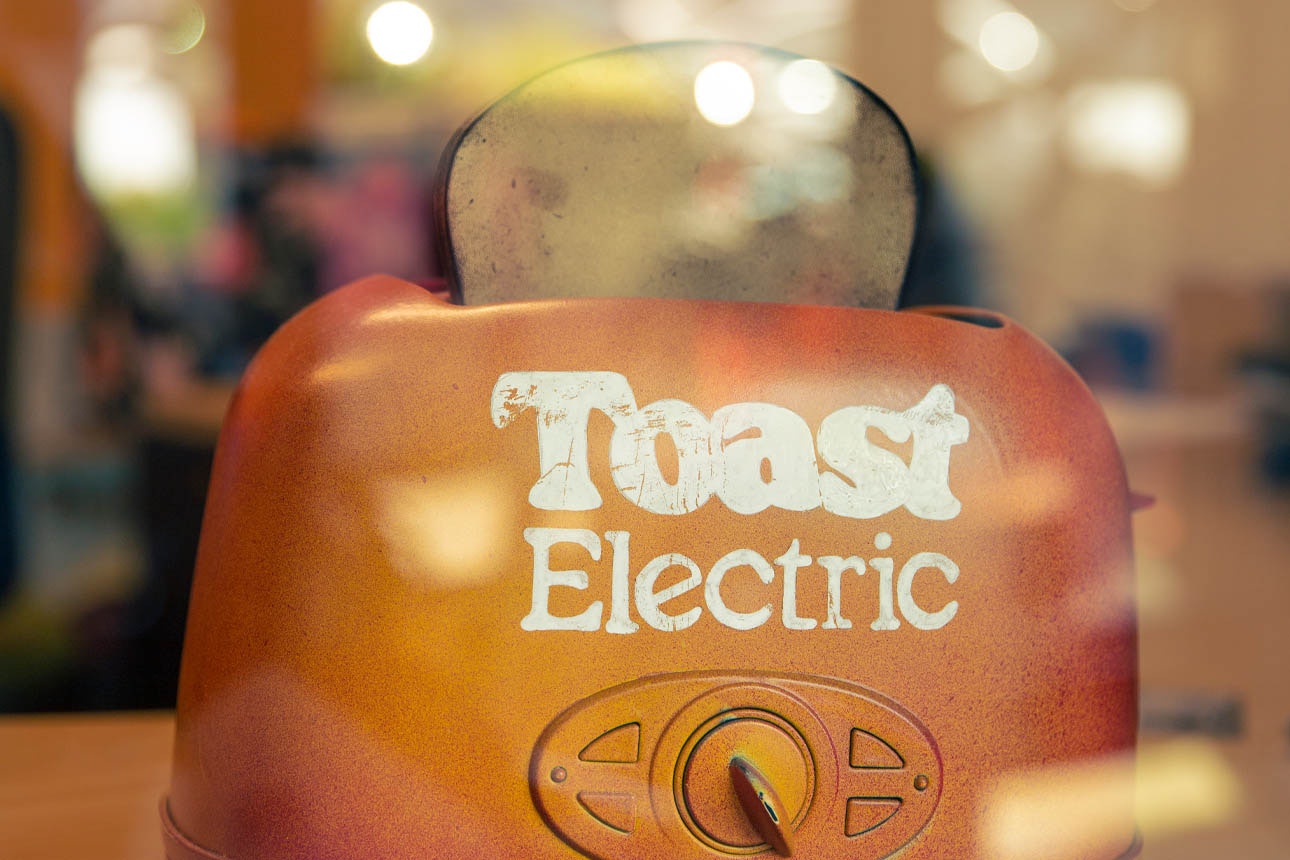We're concerned after the big four generation and retail power companies (gentailers) announced their largest ever single-year rise in earnings. This comes at a time when many New Zealand households can't afford to heat their homes.
Combined, the top four gentailers – that’s Meridian, Contact, Genesis and Mercury – made a whopping $2.7 billion in operating profits. That’s around $7.4 million profit every day over the past 12 months.
“The optics of huge profits at the height of a cost-of-living crisis aren’t great. Three out of five New Zealanders are concerned about the cost of energy,” said Consumer Chief Executive Jon Duffy.
Our survey showed 19% of households in Aotearoa had trouble paying their monthly power bill in the past 12 months; while 12% of households reported being cold because they had to cut back on heating due to its costs.
“We estimate 40,000 households have gone without power at some point in the past year because they couldn’t afford to pay.
“New Zealanders have the ability to save on their power by shopping around, but that only goes so far. More work needs to be done to ensure consumers can have confidence our electricity sector is working to their benefit.
“We acknowledge that profits are a healthy and normal part of business, but there’s a question around what is excessive.
“The big four gentailers and their subsidiaries have significant market share, providing power to about 85 percent of the market,” said Duffy.
What the gentailers earnt
Mercury, Meridian, Contact and Genesis reported earnings (EBITDAF) of:

Prepay pain
Our recent research found customers who have to use specific prepay power plans are paying about 15% more for their power than people on post-pay plans.
For electricity retailers, prepay is a handy debt management tool where the customer carries all the risk. New Zealanders on prepay are automatically disconnected from their power supply every time they run out of credit.
“Some people are forced to use prepay because all other avenues are exhausted,” said Duffy.
According to our latest survey, 6% of households said they had to switch to a prepay plan because they had had trouble paying their electricity bills.
“When faced with a choice between paying more for power, or going without power, in reality there is no choice.
“We think about 50 prepay households go without power every night. As costs continue to escalate for households across the board, we are concerned more families could face the prospect of moving to prepay arrangements.”
Competition lacking
Duffy said a lack of meaningful competition among power retailers is fueling the issue.
“It’s been 25 years since the Bradford reforms which were intended to deliver cheaper power and increased competition – yet the vast majority of New Zealanders are with one of the original retailers or their subsidiaries – enabling those gentailers to continue making huge profits.
“Retailers that don't generate electricity themselves have to buy electricity from the very gentailers they compete against at the retail level – we believe this is a deterrent to entry and is continuing to prove a barrier to genuine competition.”
While the market allows gentailers to make huge profits, our surveying has regularly found that the gentailers fall short on customer satisfaction when compared with their smaller, independent competitors.
“The power providers doing a better job of keeping their customers happy tend to have a smaller market share and have no generation assets.
“We firmly believe genuine competition could lower prices for everyone. Switching power provider is a simple way to enable this change.”
You’ve got the power
Over 40% of New Zealand households have been with their power provider for more than five years. People who switch power provider save an average of $385 per year.
Over the past year, New Zealanders who switched power provider using Powerswitch collectively saved over $5 million.
“That is $5 million that will stay in the pockets of people paying for power, rather than boosting the electricity retailer profits even further.
“Every 1% of households that switches electricity provider leads to collective savings of around $7 million a year.
“If more people switch, the gentailers will have to lift their game to keep or attract customers. Consumers have the power to generate some much-needed competition into the market,” said Duffy.

Are you paying too much for power?
We'll help you compare and find the best electricity and gas plan. Check now to see if you’re getting the best deal.



